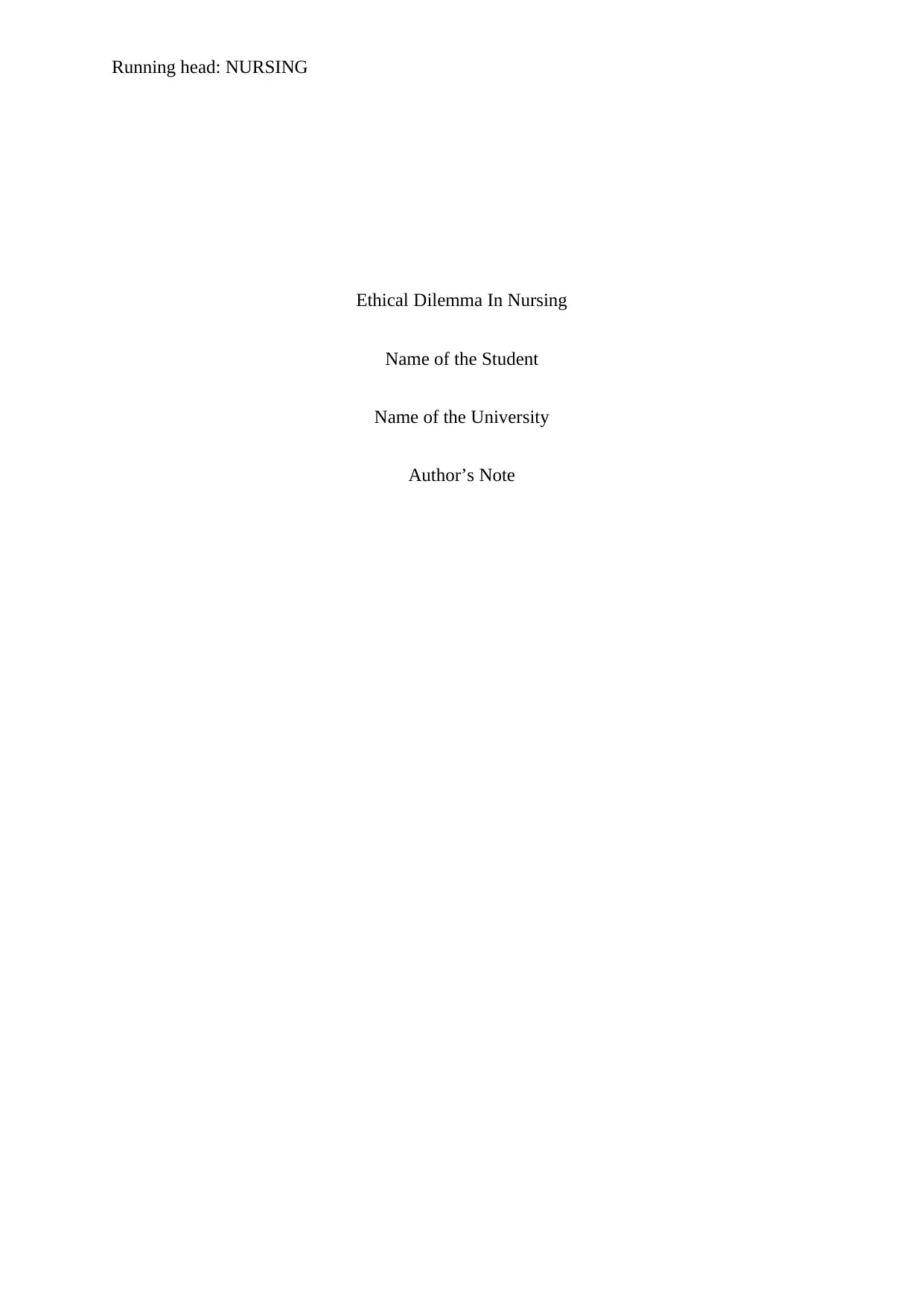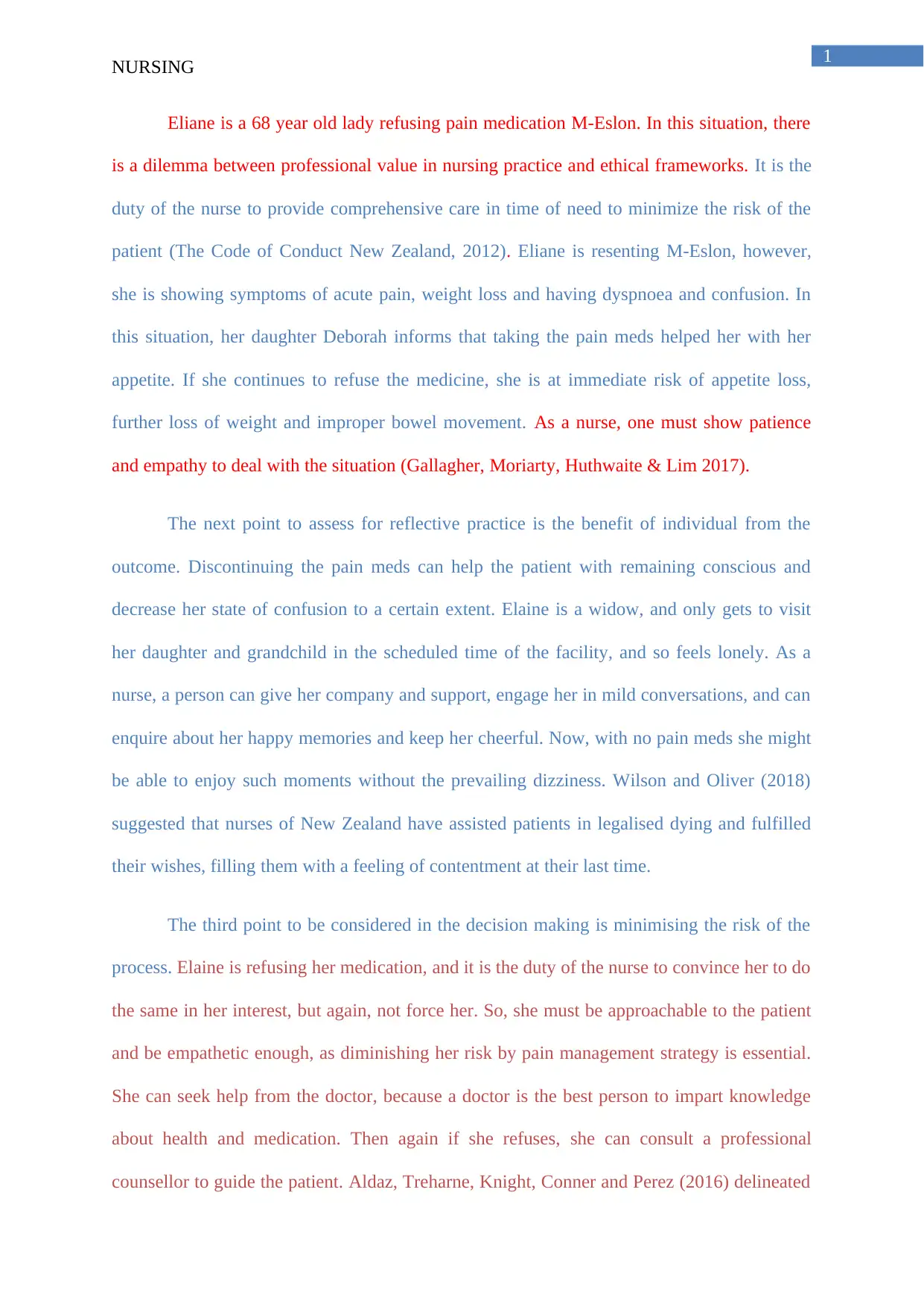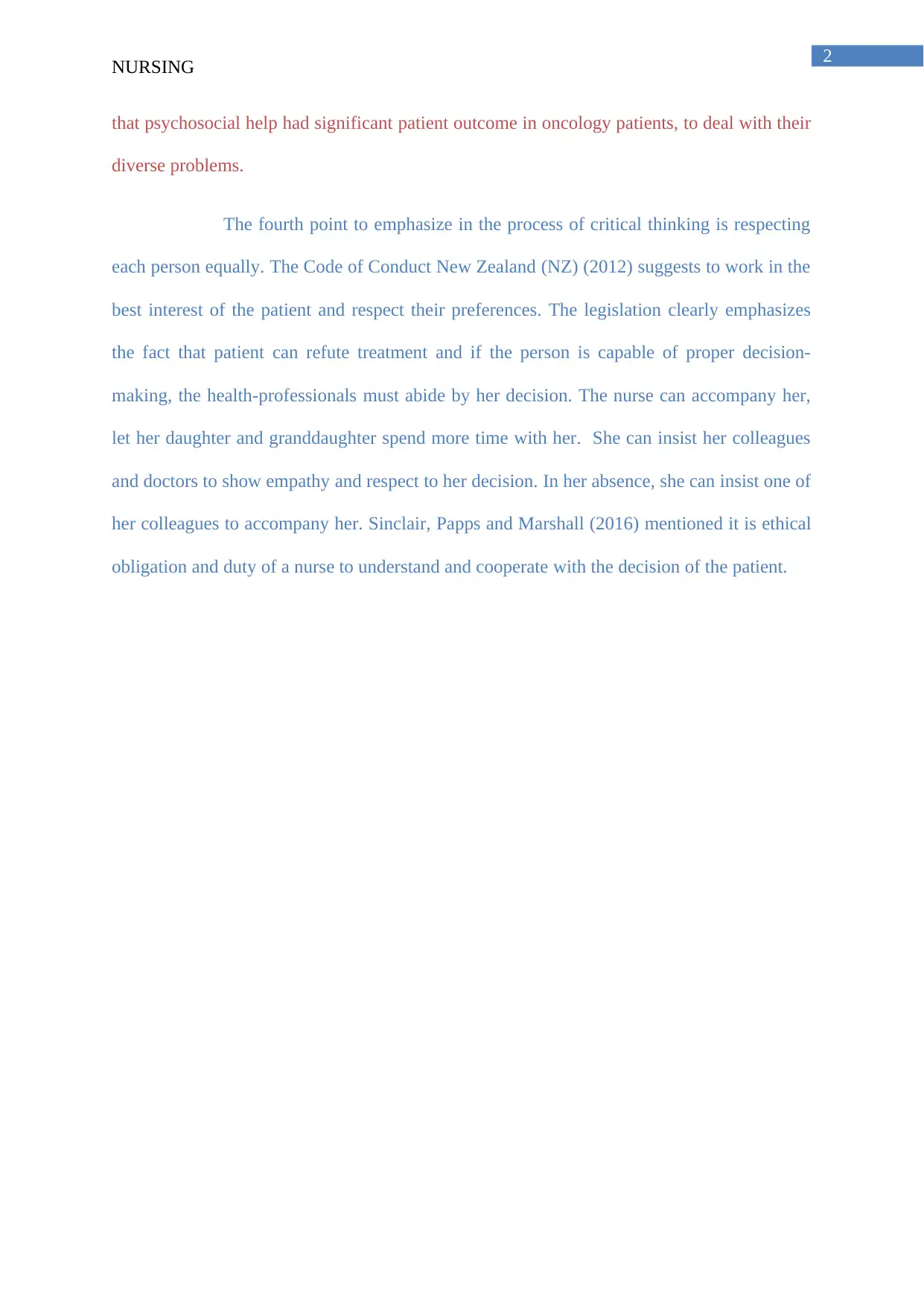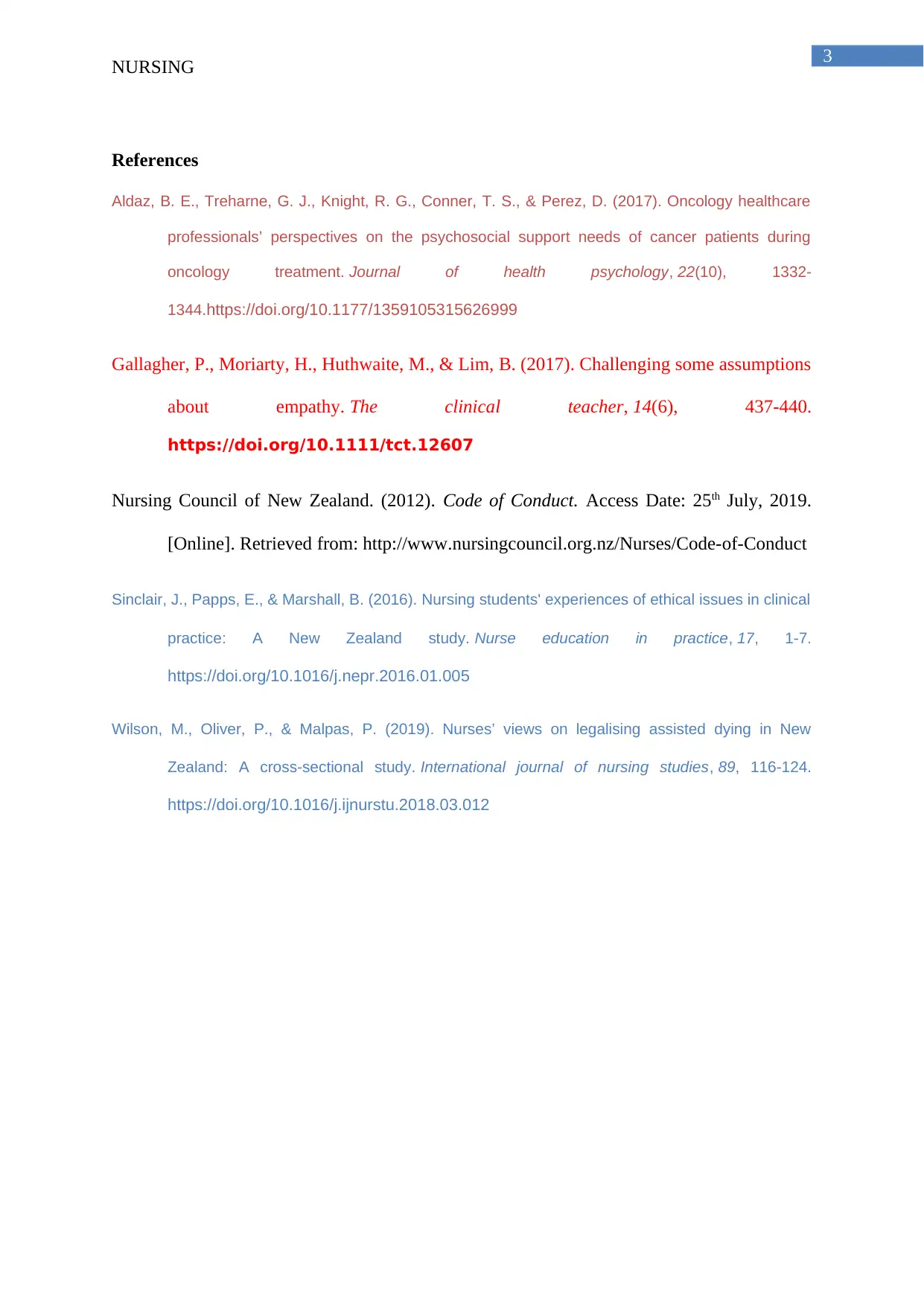Analysis of Ethical Dilemma: Patient Refusing Medication in Nursing
VerifiedAdded on 2022/10/15
|4
|843
|14
Essay
AI Summary
This essay examines an ethical dilemma in nursing practice, focusing on a 68-year-old patient, Eliane, who refuses pain medication (M-Eslon) despite experiencing acute pain, weight loss, dyspnea, and confusion. The dilemma highlights the conflict between respecting patient autonomy and the nurse's duty to provide comprehensive care. The essay explores various ethical considerations, including the patient's right to refuse treatment, the potential benefits and risks of medication refusal, and the importance of empathy and communication. It references the New Zealand Code of Conduct, emphasizing the need for nurses to balance patient preferences with their professional responsibilities. The analysis considers the impact of the patient's decision on her well-being, the role of family involvement, and the potential for seeking support from doctors and counselors. The essay underscores the importance of critical thinking, respecting individual choices, and minimizing risks while advocating for the patient's best interests within ethical and legal frameworks. Several studies are cited to support the arguments, including the importance of psychosocial support and nurses' views on assisted dying.
1 out of 4











![[object Object]](/_next/static/media/star-bottom.7253800d.svg)